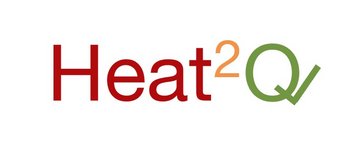Heat2Q
Energetic neighborhood optimization with detailed mapping of the heat sector
Motivation
In order to achieve Germany's greenhouse gas reduction targets, a comprehensive transformation of the energy supply is required. The heating sector plays a key role in this, partly because of the currently still low share of renewable energies. Especially considering the increasing coupling of the sectors electricity, heating, cooling and mobility as well as the volatility of renewable energy supply, conventional energy system planning methods currently used in practice are reaching their limits.
At the district level, energy system planning is usually carried out by planning companies, and the possibilities of current methods, such as cross-sectoral, dynamic energy system optimization, are usually insufficiently exploited. At the same time in science complex optimization tools are further developed and concepts are designed, but these are not widely used in practice. In order to develop practical planning tools, the specific requirements of energy supply companies and planning companies must be met in terms of both handling and functionality.
Goals
Through close cooperation between research and private industry, the Heat2Q research project aims to develop sector-coupled methodologies for analyzing energy systems at the district level that enables a detailed examination of the thermal energy supply and are oriented to the application requirements of planning companies. These open-source methodologies will be validated on real application areas, compared with conventional optimization approaches and successively developed into user-friendly optimization frameworks.
Funding
Federal Ministry of Economics and Climate Protection (BMWK)
Partners
- Chair of Renewable and Sustainable Energy Systems (Prof. Hamacher)
- Energiewende Garching GmbH & Co. KG
- EST GmbH
- GEF Ingenieur AG

